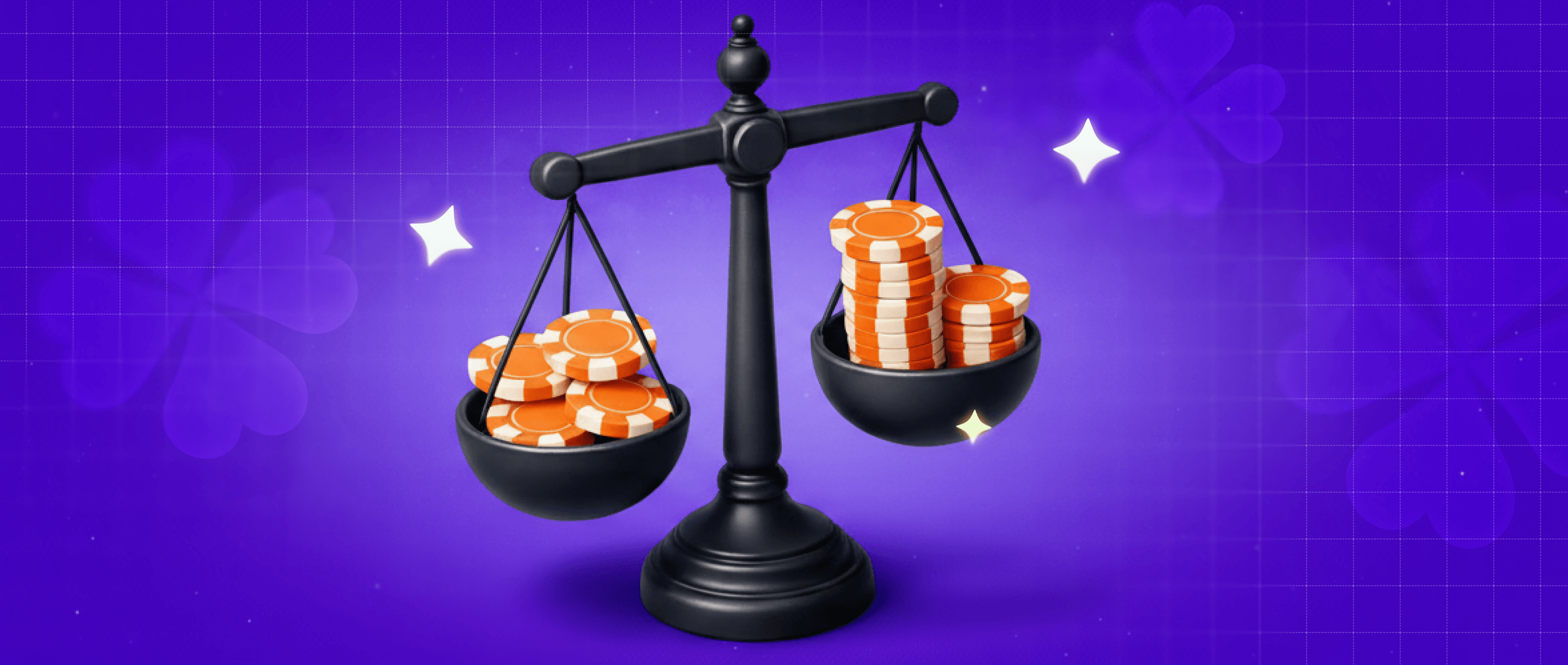
House Edge
House Edge — the built-in mathematical advantage a casino holds over the player, expressed as the long-term percentage of each bet the house expects to keep. This casino term explains game pricing and payout tables across slots, tables, and live games. Knowing what it is helps you compare games, manage risk, and set realistic gambling expectations.

Understanding House Edge
In gambling, House Edge meaning is the casino’s expected profit rate on a wager over many trials. The House Edge definition is the average percentage of each stake the house retains in the long run; the rest returns to players as RTP (return to player). Lower edge improves your odds, though variance still causes swings. Understanding this term helps you choose games, stakes, and bankroll strategy. On 101RTP you’ll find unbiased casino and slot reviews and tools that show how house edge affects sessions and bonus clearing in practice.
Examples of House Edge
Common examples of House Edge across popular casino games:
- European roulette (single zero): about 2.70%. American roulette (double zero): about 5.26%.
- Blackjack with basic strategy: roughly 0.3%–1.0% with good rules; 1%–2%+ with harsher rules.
- Baccarat: Banker ~1.06% (with commission), Player ~1.24%, Tie ~14%+.
- Craps: Pass Line 1.41%, Don’t Pass 1.36%; many proposition bets 5%–16%+.
- Slots: House Edge = 100% − RTP. A 96% RTP slot implies a 4% edge; 94% RTP implies a 6% edge.
FAQs
What is House Edge in a casino?
House Edge is the built-in margin a casino expects to earn on each bet over time. It’s expressed as a percentage and applies to slots, table games, and live games. A lower edge is better for the player; it means less expected loss per dollar wagered during gambling sessions.
How is House Edge calculated?
For slots, it’s typically 100% minus RTP. For table games, it’s derived from the game’s rules, payouts, and probabilities across all outcomes (e.g., roulette wheel layout, blackjack rules, baccarat commission). Casinos use math models and simulations to estimate the long-run average percentage the house keeps from each wager.
Can a player overcome the House Edge?
In the long run, no—random games with fixed rules favor the casino. Short-term luck can beat the edge, but over many bets the average trends toward the house advantage. Skilled advantage play (e.g., card counting), strong promotions, or mispriced offers can create positive expected value, but these are rare and often restricted.
Is House Edge the same as volatility?
No. House Edge describes the average expected loss rate, while volatility (variance) describes how bumpy the ride is. A game can have a low edge but high volatility, causing big swings. Conversely, a higher-edge game might deliver smoother results. Both factors matter for bankroll planning and session length.
Do casino bonuses change the House Edge?
Bonuses don’t change a game’s intrinsic House Edge, but they can improve your overall expected value after wagering requirements. Structure, eligible games, and bet limits matter. 101RTP’s Bonus Value Score helps you compare real bonus profitability and pick where your bankroll and playstyle are most likely to benefit.
Why does House Edge matter for bankroll management?
It helps you estimate expected loss per hour. Combine House Edge with your average bet size and bets per hour to forecast cost of play, session length, and risk of ruin. This lets you set limits, choose slower games or lower edges, and align entertainment with responsible bankroll goals.
Which games usually have the lowest House Edge?
With correct basic strategy, blackjack often sits near 0.3%–1% depending on rules. Baccarat Banker is about 1.06%. Craps Pass/Don’t Pass is around 1.4% or lower. European roulette is 2.70% versus 5.26% for American. Some video poker variants can be under 1% with optimal play.
How can I check House Edge for a slot I want to play?
Look for the game’s stated RTP and subtract from 100% to get the approximate edge. Payout tables and volatility notes help contextualize risk. On 101RTP, our slot and casino reviews list RTP ranges, and our Slot Simulator models sessions with your stake and bankroll so you can plan smarter play.
